2018 Conference Speakers
Speakers
-
Lawrence Baron
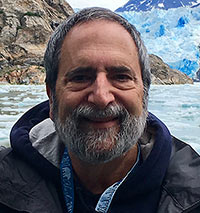 Professor Emeritus Lawrence Baron held the Nasatir Chair of Modern Jewish History at San Diego State University from 1988 until 2012 and directed its Jewish Studies Program until 2006. He received his Ph.D. in modern European cultural and intellectual history from the University of Wisconsin where he studied with George L. Mosse. He taught at St. Lawrence University from 1975 until 1988. He has authored and edited four books including The Modern Jewish Experience in World Cinema (Brandeis University Press: 2011) and Projecting the Holocaust into the Present: The Changing Focus of Contemporary Holocaust Cinema (Rowman and Littlefield: 2005). He served as the historian and as an interviewer for Sam and Pearl Oliner’s The Altruistic Personality: Rescuers of Jews in Nazi Europe. In 2006 he delivered the keynote address for Yad Vashem’s first conference devoted to Hollywood and the Holocaust. His contribution to Holocaust Studies was profiled in Fifty Key Thinkers on the Holocaust and Genocide (Routledge: 2010). In the fall Semester of 2015, he served as the Ida King Distinguished Visiting Professor of Holocaust and Genocide Studies at the Richard Stockton University of New Jersey.
Professor Emeritus Lawrence Baron held the Nasatir Chair of Modern Jewish History at San Diego State University from 1988 until 2012 and directed its Jewish Studies Program until 2006. He received his Ph.D. in modern European cultural and intellectual history from the University of Wisconsin where he studied with George L. Mosse. He taught at St. Lawrence University from 1975 until 1988. He has authored and edited four books including The Modern Jewish Experience in World Cinema (Brandeis University Press: 2011) and Projecting the Holocaust into the Present: The Changing Focus of Contemporary Holocaust Cinema (Rowman and Littlefield: 2005). He served as the historian and as an interviewer for Sam and Pearl Oliner’s The Altruistic Personality: Rescuers of Jews in Nazi Europe. In 2006 he delivered the keynote address for Yad Vashem’s first conference devoted to Hollywood and the Holocaust. His contribution to Holocaust Studies was profiled in Fifty Key Thinkers on the Holocaust and Genocide (Routledge: 2010). In the fall Semester of 2015, he served as the Ida King Distinguished Visiting Professor of Holocaust and Genocide Studies at the Richard Stockton University of New Jersey. -
Hasia Diner
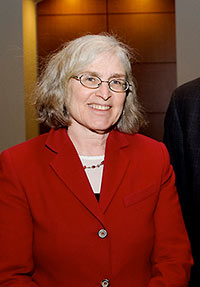 Hasia Diner is the Paul and Sylvia Steinberg Professor of American Jewish History at New York University and Director of its Goldstein-Goren Center. She received her Ph.D. at the University of Illinois-Chicago and her M.A. at the University of Chicago. A specialist in American Jewish and immigration history, she is the author of numerous books in these fields. Of particular relevance here, she authored The Jews of the United States: 1654-2000 (University of California Press) and We Remember with Reverence and Love: America Jews and the Myth of Silence After World War II. Among others, she has held a Fulbright fellowship and a Guggenheim fellowship, and she is a member of the American Academy of Jewish Research and the Society of American Historians.
Hasia Diner is the Paul and Sylvia Steinberg Professor of American Jewish History at New York University and Director of its Goldstein-Goren Center. She received her Ph.D. at the University of Illinois-Chicago and her M.A. at the University of Chicago. A specialist in American Jewish and immigration history, she is the author of numerous books in these fields. Of particular relevance here, she authored The Jews of the United States: 1654-2000 (University of California Press) and We Remember with Reverence and Love: America Jews and the Myth of Silence After World War II. Among others, she has held a Fulbright fellowship and a Guggenheim fellowship, and she is a member of the American Academy of Jewish Research and the Society of American Historians. -
Norman Domeier
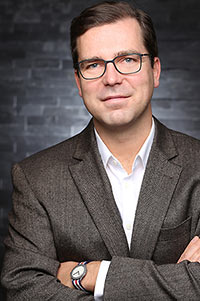 Norman Domeier is Assistant Professor of Modern European History at the University of Stuttgart (Germany). He studied History, Political Science and Media and Communication in Göttingen, Cambridge and at the European University Institute in Florence, Italy. The English edition of his Ph.D thesis, “The Eulenburg Affair. A Cultural History of Politics in the German Empire,” was published by Boydell & Brewer in 2015. His second book project—the focus of his current work—looks at the relationship between foreign journalists and the Third Reich.
Norman Domeier is Assistant Professor of Modern European History at the University of Stuttgart (Germany). He studied History, Political Science and Media and Communication in Göttingen, Cambridge and at the European University Institute in Florence, Italy. The English edition of his Ph.D thesis, “The Eulenburg Affair. A Cultural History of Politics in the German Empire,” was published by Boydell & Brewer in 2015. His second book project—the focus of his current work—looks at the relationship between foreign journalists and the Third Reich. -
Kiril Feferman
 Kiril Feferman is Senior Lecturer in Jewish Heritage at Ariel University in Israel. He is a member of the Yad Vashem Public Commission to Designate Righteous among the Nations, and has written extensively on the Holocaust in the occupied Soviet areas and World War II in the Soviet Union. His most recent book is The Holocaust in the Crimea and the Caucasus (Yad Vashem, 2016).
Kiril Feferman is Senior Lecturer in Jewish Heritage at Ariel University in Israel. He is a member of the Yad Vashem Public Commission to Designate Righteous among the Nations, and has written extensively on the Holocaust in the occupied Soviet areas and World War II in the Soviet Union. His most recent book is The Holocaust in the Crimea and the Caucasus (Yad Vashem, 2016). -
Mary Fulbrook
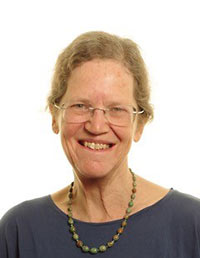 Mary Fulbrook, FBA, is Professor of German History at UCL and a graduate of Cambridge and Harvard. Previous professional roles include Chair of the Modern History Section of the British Academy, Chair of the German History Society, and Founding Joint Editor of German History, as well as serving on the Academic Advisory Board of the Foundation for the former Nazi Concentration Camps at Buchenwald and Mittelbau-Dora, and the International Advisory Board of the Chancellor Willy Brandt Foundation. Her latest book, Reckonings: Legacies of Nazi Persecution and the Quest for Justice, is published by OUP in October 2018. Recent publications include the Fraenkel Prize-winning A Small Town near Auschwitz: Ordinary Nazis and the Holocaust (OUP 2012) and Dissonant Lives: Generations and Violence through the German Dictatorships (OUP 2011; two volume paperback, 2017). Fulbrook has been awarded a number of major research grants from the Leverhulme Trust and the AHRC, and is the author or editor of 25 books, including Anatomy of a Dictatorship: Inside the GDR, 1949-89 (OUP 1995) and The People’s State: East German Society from Hitler to Honecker (Yale UP, 2005). Her current research is on complicity and perpetration, with a focus on the role of bystanders.
Mary Fulbrook, FBA, is Professor of German History at UCL and a graduate of Cambridge and Harvard. Previous professional roles include Chair of the Modern History Section of the British Academy, Chair of the German History Society, and Founding Joint Editor of German History, as well as serving on the Academic Advisory Board of the Foundation for the former Nazi Concentration Camps at Buchenwald and Mittelbau-Dora, and the International Advisory Board of the Chancellor Willy Brandt Foundation. Her latest book, Reckonings: Legacies of Nazi Persecution and the Quest for Justice, is published by OUP in October 2018. Recent publications include the Fraenkel Prize-winning A Small Town near Auschwitz: Ordinary Nazis and the Holocaust (OUP 2012) and Dissonant Lives: Generations and Violence through the German Dictatorships (OUP 2011; two volume paperback, 2017). Fulbrook has been awarded a number of major research grants from the Leverhulme Trust and the AHRC, and is the author or editor of 25 books, including Anatomy of a Dictatorship: Inside the GDR, 1949-89 (OUP 1995) and The People’s State: East German Society from Hitler to Honecker (Yale UP, 2005). Her current research is on complicity and perpetration, with a focus on the role of bystanders. -
Michael Geheran
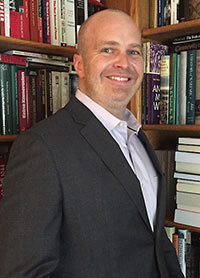 Michael Geheran is a Postdoctoral Fellow in History and Atrocity Studies at the United States Military Academy at West Point. His work has been published in Central European History and Psychology and Society, and he co-edited, with Jason Crouthamel, Tim Grady, and Julia Köhne, Beyond Inclusion and Exclusion: Jewish Experiences of the First World War in Central Europe (Berghahn Books, 2018). He is currently working on a monograph based on his doctoral research, which examines the experiences of German-Jewish World War I veterans during the Holocaust.
Michael Geheran is a Postdoctoral Fellow in History and Atrocity Studies at the United States Military Academy at West Point. His work has been published in Central European History and Psychology and Society, and he co-edited, with Jason Crouthamel, Tim Grady, and Julia Köhne, Beyond Inclusion and Exclusion: Jewish Experiences of the First World War in Central Europe (Berghahn Books, 2018). He is currently working on a monograph based on his doctoral research, which examines the experiences of German-Jewish World War I veterans during the Holocaust. -
Gershon Greenberg
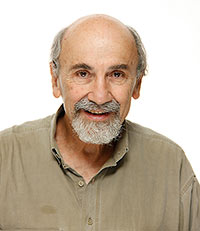 Gershon Greenberg is Visiting Professor in the Department of Jewish Thought, Hebrew University of Jerusalem, where he teaches graduate seminars and undergraduate classes on Musar, Hasidism, and Messianism during the catastrophe; and Professor of Philosophy and Religion at American University, Washington, D.C. He received his doctorate from the Joint Program in Religious Philosophy at Columbia University and Union Theological Seminary in 1969. His primary field of research is Jewish religious thought through the Holocaust. Works include Mishpatekha tehom Rabbah: Teguvot hagutiot ortodoksiot lashoah, with Asaf Yedidyah (Jerusalem 2016) and Wrestling with God: Jewish Theological Responses to the Holocaust, with Steven T. Katz (Oxford 2007). He has served as a Fellow at Yad Vashem’s Institute for Advanced Holocaust Scholarship; Hebrew University’s Institute for Advanced Study; and the Oxford Centre for Hebrew and Jewish Studies.
Gershon Greenberg is Visiting Professor in the Department of Jewish Thought, Hebrew University of Jerusalem, where he teaches graduate seminars and undergraduate classes on Musar, Hasidism, and Messianism during the catastrophe; and Professor of Philosophy and Religion at American University, Washington, D.C. He received his doctorate from the Joint Program in Religious Philosophy at Columbia University and Union Theological Seminary in 1969. His primary field of research is Jewish religious thought through the Holocaust. Works include Mishpatekha tehom Rabbah: Teguvot hagutiot ortodoksiot lashoah, with Asaf Yedidyah (Jerusalem 2016) and Wrestling with God: Jewish Theological Responses to the Holocaust, with Steven T. Katz (Oxford 2007). He has served as a Fellow at Yad Vashem’s Institute for Advanced Holocaust Scholarship; Hebrew University’s Institute for Advanced Study; and the Oxford Centre for Hebrew and Jewish Studies. -
Wolf Gruner
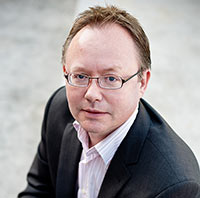 Wolf Gruner is a Professor of History and the Shapell-Guerin Chair in Jewish Studies at the University of Southern California. He is the Founding Director of USC Shoah Foundation’s Center for Advanced Genocide Research and the author of ten books on the Holocaust, the most recent of which deals with the persecution of the Jews in Bohemia and Moravia 1933-45 and their reactions. Gruner is a specialist in the history of the Holocaust and in comparative genocide studies and a member of the International Academic Advisory Board of the Journal of Genocide Research, Jerusalem, the International Advisory Board of the Center for Research on the Holocaust in Germany at Yad Vashem’s International Institute for Holocaust Research, Jerusalem.
Wolf Gruner is a Professor of History and the Shapell-Guerin Chair in Jewish Studies at the University of Southern California. He is the Founding Director of USC Shoah Foundation’s Center for Advanced Genocide Research and the author of ten books on the Holocaust, the most recent of which deals with the persecution of the Jews in Bohemia and Moravia 1933-45 and their reactions. Gruner is a specialist in the history of the Holocaust and in comparative genocide studies and a member of the International Academic Advisory Board of the Journal of Genocide Research, Jerusalem, the International Advisory Board of the Center for Research on the Holocaust in Germany at Yad Vashem’s International Institute for Holocaust Research, Jerusalem. -
François Guesnet
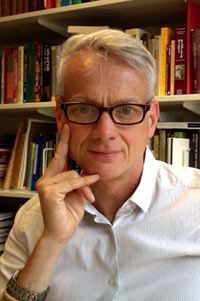 Dr François Guesnet is Reader in Modern Jewish History in the Department of Hebrew and Jewish Studies at University College London and currently serves as Secretary and Director of the European Association for Jewish Studies. He holds a PhD in Modern History from Albert-Ludwigs-Universität, Freiburg im Breisgau, and specializes in the early modern and 19th century history of Eastern European, and more specifically, Polish Jews. He is co-chair of the editorial board of Polin: Studies in Polish Jewry. He has held research and teaching fellowships at the Hebrew University Jerusalem, the University of Pennsylvania (Philadelphia), the University of Oxford, Dartmouth College and the Jagiellonian University (Kraków). His book publications include Polnische Juden im 19. Jahrhundert: Lebensbedingungen, Rechtsnormen und Organisation im Wandel (Böhlau-Verlag: Köln, Wien 1998), Der Fremde als Nachbar. Polnische Positionen zur jüdischen Präsenz in Polen. Texte seit 1800 (Suhrkamp-Verlag: Frankfurt am Main 2009), and, with Gwenyth Jones, Antisemitism in an Era of Transition: The Case of Post-Communist Eastern Central Europe (Frankfurt/Main: Peter Lang Verlag 2014).
Dr François Guesnet is Reader in Modern Jewish History in the Department of Hebrew and Jewish Studies at University College London and currently serves as Secretary and Director of the European Association for Jewish Studies. He holds a PhD in Modern History from Albert-Ludwigs-Universität, Freiburg im Breisgau, and specializes in the early modern and 19th century history of Eastern European, and more specifically, Polish Jews. He is co-chair of the editorial board of Polin: Studies in Polish Jewry. He has held research and teaching fellowships at the Hebrew University Jerusalem, the University of Pennsylvania (Philadelphia), the University of Oxford, Dartmouth College and the Jagiellonian University (Kraków). His book publications include Polnische Juden im 19. Jahrhundert: Lebensbedingungen, Rechtsnormen und Organisation im Wandel (Böhlau-Verlag: Köln, Wien 1998), Der Fremde als Nachbar. Polnische Positionen zur jüdischen Präsenz in Polen. Texte seit 1800 (Suhrkamp-Verlag: Frankfurt am Main 2009), and, with Gwenyth Jones, Antisemitism in an Era of Transition: The Case of Post-Communist Eastern Central Europe (Frankfurt/Main: Peter Lang Verlag 2014). -
Anne Klotz
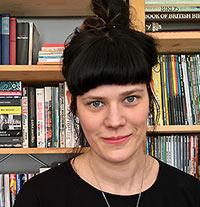 Anne-Christin Klotz is a Ph.D. candidate at Freie Universität Berlin (Eastern European Institute), where she also received her B.A. in History and Jewish Studies and her M.A. in East European Studies. Before and during her studies she worked as a volunteer for the German NGO Action Reconciliation Service for Peace in the educational department at the memorial site Stutthof (Sztutowo, Poland) and as a junior research fellow in the document collection project The Persecution and Extermination of the European Jews by Nazi Germany, 1933-1945 at the Institute for Contemporary History, Berlin. Between 2015 and 2018 she was a research assistant at the Selma-Stern-Centre for Jewish Studies Berlin-Brandenburg, and she is currently a Claims Conference Saul Kagan Fellow in Advanced Shoah Studies. She is writing her thesis on individual and collective reactions of Polish-Jewish journalists who wrote for the Yiddish daily press in Warsaw on the events in Nazi Germany from the moment of Hitler’s rise to power in January 1933 up to the German invasion of Poland in September 1939 and the following months.
Anne-Christin Klotz is a Ph.D. candidate at Freie Universität Berlin (Eastern European Institute), where she also received her B.A. in History and Jewish Studies and her M.A. in East European Studies. Before and during her studies she worked as a volunteer for the German NGO Action Reconciliation Service for Peace in the educational department at the memorial site Stutthof (Sztutowo, Poland) and as a junior research fellow in the document collection project The Persecution and Extermination of the European Jews by Nazi Germany, 1933-1945 at the Institute for Contemporary History, Berlin. Between 2015 and 2018 she was a research assistant at the Selma-Stern-Centre for Jewish Studies Berlin-Brandenburg, and she is currently a Claims Conference Saul Kagan Fellow in Advanced Shoah Studies. She is writing her thesis on individual and collective reactions of Polish-Jewish journalists who wrote for the Yiddish daily press in Warsaw on the events in Nazi Germany from the moment of Hitler’s rise to power in January 1933 up to the German invasion of Poland in September 1939 and the following months. -
Jeffrey Koerber
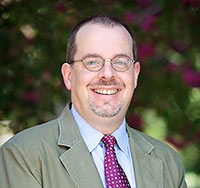 Jeff Koerber is an Assistant Professor of History at Chapman University in Orange, California. He holds a Ph.D. in Holocaust History from Clark University, as well as bachelor’s and master’s degrees in architecture from the University of Illinois. Dr. Koerber has published widely on historic architecture and building preservation. His work on historic structures and sites has prompted his research into the relationships linking place, historical actors, and events. These inquiries form the basis of his research on the experiences of young Jews in the borderlands of the Soviet Union and Poland during the Holocaust. He has received fellowships from Claims Conference, USC Shoah Foundation Institute, Holocaust Educational Foundation, Tauber Institute for the Study of European Jewry, and Fulbright.
Jeff Koerber is an Assistant Professor of History at Chapman University in Orange, California. He holds a Ph.D. in Holocaust History from Clark University, as well as bachelor’s and master’s degrees in architecture from the University of Illinois. Dr. Koerber has published widely on historic architecture and building preservation. His work on historic structures and sites has prompted his research into the relationships linking place, historical actors, and events. These inquiries form the basis of his research on the experiences of young Jews in the borderlands of the Soviet Union and Poland during the Holocaust. He has received fellowships from Claims Conference, USC Shoah Foundation Institute, Holocaust Educational Foundation, Tauber Institute for the Study of European Jewry, and Fulbright. -
Ber Kotlerman
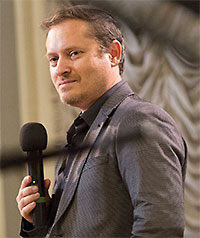 Dov Ber Kotlerman is Associate Professor at the Department of Literature of the Jewish People, Bar Ilan University, where he was Academic Director of the Rena Costa Center for Yiddish Studies in 2011-14. He is the author and editor of a number of monographs and collections in the field of Eastern European Jewish (Yiddish) Culture and Jewish-Asian Connections, among them Broken Heart/Broken Wholeness: The Post-Holocaust Plea for Jewish Reconstruction of the Soviet Yiddish Writer Der Nister (Boston 2017) and Mizrekh: Jewish Studies in the Far East I-II (Frankfurt am Main 2009 and 2011). He served as scholar-in-residence or visiting professor at the Yeshiva University (2012), the Tokyo Kokushikan University (2013), the University of Cape Town (2015), and the Vytautas Magnus University in Kaunas, Lithuania (2016).
Dov Ber Kotlerman is Associate Professor at the Department of Literature of the Jewish People, Bar Ilan University, where he was Academic Director of the Rena Costa Center for Yiddish Studies in 2011-14. He is the author and editor of a number of monographs and collections in the field of Eastern European Jewish (Yiddish) Culture and Jewish-Asian Connections, among them Broken Heart/Broken Wholeness: The Post-Holocaust Plea for Jewish Reconstruction of the Soviet Yiddish Writer Der Nister (Boston 2017) and Mizrekh: Jewish Studies in the Far East I-II (Frankfurt am Main 2009 and 2011). He served as scholar-in-residence or visiting professor at the Yeshiva University (2012), the Tokyo Kokushikan University (2013), the University of Cape Town (2015), and the Vytautas Magnus University in Kaunas, Lithuania (2016). -
Jason Lustig
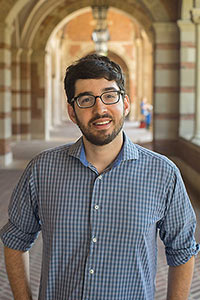 Jason Lustig is a Harry Starr Fellow in Judaica at Harvard's Center for Jewish Studies and the Gerald& Westheimer Early Career Fellow at the Leo Baeck Institute. Dr. Lustig received his Ph.D. from the UCLA Department of History in 2017, and his research focuses on the history of Jewish archives in Germany, the United States, and Israel/Palestine. His work has appeared in the Journal of Contemporary History and American Jewish History, and he is currently preparing a book manuscript titled A Time to Gather: Archives and the Control of Jewish Culture. He also is the creator and host of the Jewish History Matters podcast (www.jewishhistory.fm).
Jason Lustig is a Harry Starr Fellow in Judaica at Harvard's Center for Jewish Studies and the Gerald& Westheimer Early Career Fellow at the Leo Baeck Institute. Dr. Lustig received his Ph.D. from the UCLA Department of History in 2017, and his research focuses on the history of Jewish archives in Germany, the United States, and Israel/Palestine. His work has appeared in the Journal of Contemporary History and American Jewish History, and he is currently preparing a book manuscript titled A Time to Gather: Archives and the Control of Jewish Culture. He also is the creator and host of the Jewish History Matters podcast (www.jewishhistory.fm). -
Paul J. Moore
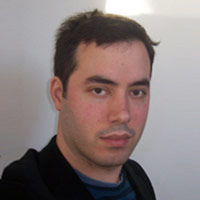 Paul Moore is a lecturer in Modern European History at the University of Leicester and deputy director of the Stanley Burton Centre for Holocaust and Genocide Studies. He received his Ph.D. from Birkbeck College, University of London in 2010, in which he investigated German popular opinion on Nazi concentration camps from 1933 to 1939. He has served as a Teaching Fellow in International History at the London School of Economics and Political Science. His publications include ‘“The Truth about the Concentration Camps”: Werner Schäfer’s Anti-Brown Book and the Transnational Debate on Early Nazi Terror’ (2016), ‘“One Country Alone Says Nothing”: French Press Reactions to “La Nuit de Cristal” (2014), and The View from Outside: The Nazi Concentration Camps and the German Public, 1933-1945 (Oxford University Press, forthcoming in 2018).
Paul Moore is a lecturer in Modern European History at the University of Leicester and deputy director of the Stanley Burton Centre for Holocaust and Genocide Studies. He received his Ph.D. from Birkbeck College, University of London in 2010, in which he investigated German popular opinion on Nazi concentration camps from 1933 to 1939. He has served as a Teaching Fellow in International History at the London School of Economics and Political Science. His publications include ‘“The Truth about the Concentration Camps”: Werner Schäfer’s Anti-Brown Book and the Transnational Debate on Early Nazi Terror’ (2016), ‘“One Country Alone Says Nothing”: French Press Reactions to “La Nuit de Cristal” (2014), and The View from Outside: The Nazi Concentration Camps and the German Public, 1933-1945 (Oxford University Press, forthcoming in 2018). -
Steve Ross
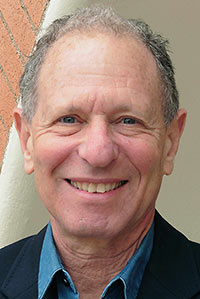 Steven J. Ross is Professor of History at the University of Southern California and director of the Casden Institute for the Study of the Jewish Role in American Life. His most recent book, Hitler in Los Angeles: How Jews Foiled Nazi Plots Against Hollywood and America was selected as a finalist for the Pulitzer Prize in History for 2018; it was also on the Los Angeles Times Bestseller List for 12 weeks. His previous book, Hollywood Left and Right: How Movie Stars Shaped American Politics, received the Academy of Motion Picture Arts and Sciences’ Film Scholars Award and was selected by the New York Times Book Review as a “Recommended Summer Readings” for 2012. Ross’ Op-Ed pieces have appeared in the Los Angeles Times, Wall Street Journal, Washington Post, International Herald-Tribune, Hollywood Reporter, Huffington Post, Daily Beast, and Politico. He has lectured throughout the U.S. as well as in London, Paris, Sydney, and Auckland.
Steven J. Ross is Professor of History at the University of Southern California and director of the Casden Institute for the Study of the Jewish Role in American Life. His most recent book, Hitler in Los Angeles: How Jews Foiled Nazi Plots Against Hollywood and America was selected as a finalist for the Pulitzer Prize in History for 2018; it was also on the Los Angeles Times Bestseller List for 12 weeks. His previous book, Hollywood Left and Right: How Movie Stars Shaped American Politics, received the Academy of Motion Picture Arts and Sciences’ Film Scholars Award and was selected by the New York Times Book Review as a “Recommended Summer Readings” for 2012. Ross’ Op-Ed pieces have appeared in the Los Angeles Times, Wall Street Journal, Washington Post, International Herald-Tribune, Hollywood Reporter, Huffington Post, Daily Beast, and Politico. He has lectured throughout the U.S. as well as in London, Paris, Sydney, and Auckland. -
Baijayanti Roy
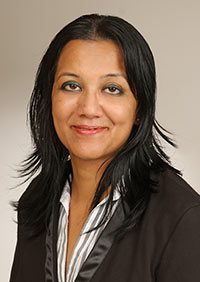 Baijayanti Roy is post-doctoral researcher at the Goethe University, Frankfurt am Main (Arbeitsgruppe Wissenschaftsgechichte or Study Group, History of Science), where she also received her Ph.D. Her current academic interest is to trace the connections between India, the country of her birth, and Germany, her country of residence. Her present research focuses primarily on the history of German Indology, from late 19th to the mid-20th century. Several of her forthcoming publications also relate to Nazi Germany, focusing on the trajectory of Indologist Heinrich Zimmer in the Third Reich, the dark attractions of Eagle’s Nest, Hitler’s tea house and the state of knowledge about Holocaust in present-day India. Having worked as a journalist in India, Baijayanti remains a keen observer of Indian politics, particularly the politics of Hindu nationalism that holds sway over contemporary India. She has spoken in several international conferences and written articles in Indian newspapers on the influence of political Hinduism on particular Hindi (Bollywood) historical films.
Baijayanti Roy is post-doctoral researcher at the Goethe University, Frankfurt am Main (Arbeitsgruppe Wissenschaftsgechichte or Study Group, History of Science), where she also received her Ph.D. Her current academic interest is to trace the connections between India, the country of her birth, and Germany, her country of residence. Her present research focuses primarily on the history of German Indology, from late 19th to the mid-20th century. Several of her forthcoming publications also relate to Nazi Germany, focusing on the trajectory of Indologist Heinrich Zimmer in the Third Reich, the dark attractions of Eagle’s Nest, Hitler’s tea house and the state of knowledge about Holocaust in present-day India. Having worked as a journalist in India, Baijayanti remains a keen observer of Indian politics, particularly the politics of Hindu nationalism that holds sway over contemporary India. She has spoken in several international conferences and written articles in Indian newspapers on the influence of political Hinduism on particular Hindi (Bollywood) historical films. -
Nathalie Ségeral
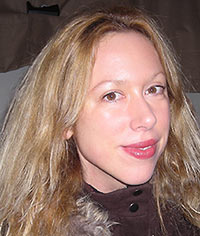 Nathalie Ségeral is an assistant professor of French and translation studies at the University of Hawaii at Mānoa. Her research, publications, and teaching revolve around memory and trauma studies, women’s and gender studies, the Holocaust, the Rwandan genocide, and the French-speaking South Pacific. Her most recent publications include: a French translation of David Chappell’sLe Réveil kanak [The Kanak Awakening] (New Caledonia University Press, 2017), “(Re-)Inscribing the South Pacific in the Francophone World: (Non-)Motherhood, Gendered Violence, and Infanticide in Three Oceanian Women Writers” (SITES: Contemporary French and Francophone Studies, 2018), and “(Re)Claiming Motherhood during and after the Holocaust in Chava Rosenfarb’s Little Red Bird and Valentine Goby’s Kinderzimmer” (Dapim: Studies on the Holocaust, forthcomingJune 2019). In summer 2018, she will be a fellow at TOLI (The Olga Lengyel Institute) Summer Seminar on Holocaust Education and a fellow at the University of London’s Summer Institute on the Holocaust and Jewish Civilization.
Nathalie Ségeral is an assistant professor of French and translation studies at the University of Hawaii at Mānoa. Her research, publications, and teaching revolve around memory and trauma studies, women’s and gender studies, the Holocaust, the Rwandan genocide, and the French-speaking South Pacific. Her most recent publications include: a French translation of David Chappell’sLe Réveil kanak [The Kanak Awakening] (New Caledonia University Press, 2017), “(Re-)Inscribing the South Pacific in the Francophone World: (Non-)Motherhood, Gendered Violence, and Infanticide in Three Oceanian Women Writers” (SITES: Contemporary French and Francophone Studies, 2018), and “(Re)Claiming Motherhood during and after the Holocaust in Chava Rosenfarb’s Little Red Bird and Valentine Goby’s Kinderzimmer” (Dapim: Studies on the Holocaust, forthcomingJune 2019). In summer 2018, she will be a fellow at TOLI (The Olga Lengyel Institute) Summer Seminar on Holocaust Education and a fellow at the University of London’s Summer Institute on the Holocaust and Jewish Civilization. -
Stephanie Seul
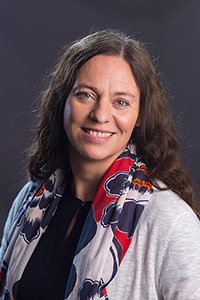 Stephanie Seul is a Lecturer in Media History at Deutsche Presseforschung, Department of Cultural Studies, University of Bremen. She studied History at LMU Munich and holds an M.Phil. from the University of Cambridge and a Ph.D. from the European University Institute in Florence. Her research focuses on British propaganda during the Second World War, on the German and international press during 1914-1945, and on media representations of antisemitism and the Holocaust. Her current project is entitled “German Antisemitism and the International Press during the Weimar Republic, 1918-1933.” Stephanie’s writing has appeared in numerous edited volumes and journals, including the Leo Baeck Institute Year Book, Jewish Historical Studies, Politics, Religion & Ideology, Media History, Journal of Modern Italian Studies, Neue Politische Literatur, and Jahrbuch für Kommunikationsgeschichte. Together with Nelson Ribeiro she edited a special issue of Media History (vol. 21,4 (2015)) entitled “Revisiting transnational broadcasting: The BBC’s foreign-language services during the Second World War.”
Stephanie Seul is a Lecturer in Media History at Deutsche Presseforschung, Department of Cultural Studies, University of Bremen. She studied History at LMU Munich and holds an M.Phil. from the University of Cambridge and a Ph.D. from the European University Institute in Florence. Her research focuses on British propaganda during the Second World War, on the German and international press during 1914-1945, and on media representations of antisemitism and the Holocaust. Her current project is entitled “German Antisemitism and the International Press during the Weimar Republic, 1918-1933.” Stephanie’s writing has appeared in numerous edited volumes and journals, including the Leo Baeck Institute Year Book, Jewish Historical Studies, Politics, Religion & Ideology, Media History, Journal of Modern Italian Studies, Neue Politische Literatur, and Jahrbuch für Kommunikationsgeschichte. Together with Nelson Ribeiro she edited a special issue of Media History (vol. 21,4 (2015)) entitled “Revisiting transnational broadcasting: The BBC’s foreign-language services during the Second World War.” -
Liat Steir-Livny
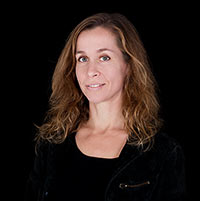 Liat Steir-Livny is an Assistant Professor in the Department of Culture at Sapir Academic College, Israel. She also serves as a tutor and course coordinator in the MA program in Cultural Studies and in the Arts Department at the Open University, Israel. Her books and articles focus on Holocaust commemoration in Israel. Her first book, Two Faces in the Mirror (Eshkolot-Magness, 2009), analyzes the representation of Holocaust survivors in Israeli cinema, while her second book, Let the Memorial Hill Remember (Resling, 2014), analyzes the changing memory of the Holocaust in contemporary Israeli culture. Other works include Is It O.K to Laugh About It? (Vallentine Mitchell, 2017), which analyses Holocaust humor, satire and parody in Israeli culture, and Three Years, Two Perspectives, One Trauma (The Herzl Institute for the Study of Zionism, University of Haifa, In Print), which compares the films and newsletters of American Jewish organizations and Eretz-Israeli organizations in the peak years of the Zionist struggle for a Jewish State.
Liat Steir-Livny is an Assistant Professor in the Department of Culture at Sapir Academic College, Israel. She also serves as a tutor and course coordinator in the MA program in Cultural Studies and in the Arts Department at the Open University, Israel. Her books and articles focus on Holocaust commemoration in Israel. Her first book, Two Faces in the Mirror (Eshkolot-Magness, 2009), analyzes the representation of Holocaust survivors in Israeli cinema, while her second book, Let the Memorial Hill Remember (Resling, 2014), analyzes the changing memory of the Holocaust in contemporary Israeli culture. Other works include Is It O.K to Laugh About It? (Vallentine Mitchell, 2017), which analyses Holocaust humor, satire and parody in Israeli culture, and Three Years, Two Perspectives, One Trauma (The Herzl Institute for the Study of Zionism, University of Haifa, In Print), which compares the films and newsletters of American Jewish organizations and Eretz-Israeli organizations in the peak years of the Zionist struggle for a Jewish State. -
Maximilian Strnad
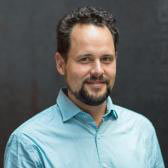 Maximilian Strnad is a historian at the Munich City Archive, and recently received his Ph.D. in Contemporary History from the Ludwig-Maximilians University (LMU) in Munich, Germany. Strnad has been involved in many university- and community-based research undertakings, coordinating, among others, the “Deportation of Munich Jews” project (with Peter Longerich) at the NS-Documentation Center and working as a researcher in the “Jews in Germany Since 1945” project at LMU’s Department of Jewish History and Culture (with Michael Brenner). He has been awarded a Sosland Family Fellowship at the Jack, Joseph and Morton Mandel Center for Advanced Holocaust Studies at the United States Holocaust Memorial Museum in Washington, D.C., and a scholarship from the Leo Baeck Fellowship Program and the Studienstiftung des Deutschen Volkes. In addition to a series of articles and book chapters, he is the author of Zwischenstation “Judensiedlung.” Verfolgung und Deportation der jüdischen Münchner 1941-1945 (Munich: Oldenbourg Verlag, 2011) and Flachs für das Reich. Das jüdische Zwangsarbeitslager “Flachsröste” bei München (Munich: Volk Verlag, 2013). He also co-edited (with Michael Brenner) Der Holocaust in der deutschsprachigen Geschichtswissenschaft (Göttingen: Wallstein Verlag, 2012).
Maximilian Strnad is a historian at the Munich City Archive, and recently received his Ph.D. in Contemporary History from the Ludwig-Maximilians University (LMU) in Munich, Germany. Strnad has been involved in many university- and community-based research undertakings, coordinating, among others, the “Deportation of Munich Jews” project (with Peter Longerich) at the NS-Documentation Center and working as a researcher in the “Jews in Germany Since 1945” project at LMU’s Department of Jewish History and Culture (with Michael Brenner). He has been awarded a Sosland Family Fellowship at the Jack, Joseph and Morton Mandel Center for Advanced Holocaust Studies at the United States Holocaust Memorial Museum in Washington, D.C., and a scholarship from the Leo Baeck Fellowship Program and the Studienstiftung des Deutschen Volkes. In addition to a series of articles and book chapters, he is the author of Zwischenstation “Judensiedlung.” Verfolgung und Deportation der jüdischen Münchner 1941-1945 (Munich: Oldenbourg Verlag, 2011) and Flachs für das Reich. Das jüdische Zwangsarbeitslager “Flachsröste” bei München (Munich: Volk Verlag, 2013). He also co-edited (with Michael Brenner) Der Holocaust in der deutschsprachigen Geschichtswissenschaft (Göttingen: Wallstein Verlag, 2012). -
Alexander Walther
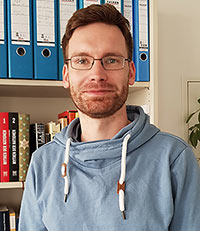 Alexander Walther is a Ph.D. student at the Friedrich Schiller University of Jena. He studied history and English in a teacher’s training course at Friedrich Schiller University, receiving his First State Exam in 2014. In his thesis, he analysed the memoirs of former Yugoslavian refugees who had fled to Germany in the 1990s war. From 2010-2015 he worked as a student and research assistant at Imre Kertész Kolleg Jena. Since 2015 he has worked as a research associate at Europäisches Kolleg Jena. Das 20. Jahrhundert und seine Repräsentationen and as a doctoral candidate at Friedrich Schiller University of Jena. His dissertation project investigates the multi-faceted forms of commemoration practices and representations of the Shoah within the GDR’s culture of remembrance, dominated by anti-fascism.
Alexander Walther is a Ph.D. student at the Friedrich Schiller University of Jena. He studied history and English in a teacher’s training course at Friedrich Schiller University, receiving his First State Exam in 2014. In his thesis, he analysed the memoirs of former Yugoslavian refugees who had fled to Germany in the 1990s war. From 2010-2015 he worked as a student and research assistant at Imre Kertész Kolleg Jena. Since 2015 he has worked as a research associate at Europäisches Kolleg Jena. Das 20. Jahrhundert und seine Repräsentationen and as a doctoral candidate at Friedrich Schiller University of Jena. His dissertation project investigates the multi-faceted forms of commemoration practices and representations of the Shoah within the GDR’s culture of remembrance, dominated by anti-fascism. -
Mark Wolfgram
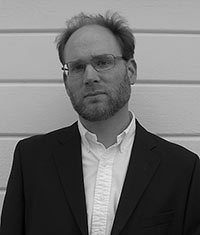 Mark A. Wolfgram (Ph.D., University of Wisconsin-Madison 2001) is a lecturer in political science at McGill University. His previous book, “Getting History Right:” East and West German Collective Memories of the Holocaust and War was published by Bucknell University Press in 2011. His forthcoming book, Antigone's Ghosts: The Long Legacy of War and Genocide in Five Countries, will also appear with Bucknell University Press in late 2018. The book combines political and cultural analysis of how Germany, Japan, Spain, Yugoslavia and Turkey have dealt with their difficult histories in the context of the 20th century. He is a member of the international steering committee for the Historical Dialogues, Justice and Memory Network, which organizes an annual international conference on historical dialogues and how societies deal with their violent histories. He has received fellowship awards from the Charlotte W. Newcombe Foundation, the Joan Shorenstein Center at Harvard University, and the German Academic Exchange Service.
Mark A. Wolfgram (Ph.D., University of Wisconsin-Madison 2001) is a lecturer in political science at McGill University. His previous book, “Getting History Right:” East and West German Collective Memories of the Holocaust and War was published by Bucknell University Press in 2011. His forthcoming book, Antigone's Ghosts: The Long Legacy of War and Genocide in Five Countries, will also appear with Bucknell University Press in late 2018. The book combines political and cultural analysis of how Germany, Japan, Spain, Yugoslavia and Turkey have dealt with their difficult histories in the context of the 20th century. He is a member of the international steering committee for the Historical Dialogues, Justice and Memory Network, which organizes an annual international conference on historical dialogues and how societies deal with their violent histories. He has received fellowship awards from the Charlotte W. Newcombe Foundation, the Joan Shorenstein Center at Harvard University, and the German Academic Exchange Service.
Chairs
-
Jean-Marc Dreyfus
 Jean-Marc Dreyfus is a reader at the University of Manchester and at Sciences-Po Paris. He is a specialist of the economic and diplomatic aspects of the Holocaust and post-war reparations. His research considers other genocides, Jewish history in Europe and post-mass violence exhumations of corpses). He also works and looted art in the Holocaust and the unfinished restitution process. His last book is, in collaboration with Alexandra Garbarini, an edition of Lucien Dreyfus’ Holocaust diary (Paris: Le Manuscrit, 2018), forthcoming in English in 2019. He is the author of six monographs, including L’impossible réparation. Déportés, biens spoliés, or nazi, comptes bloqués, criminels de guerre (The impossible réparation. Deportees, looted properties, Nazi gold, war criminals), Paris, Flammarion, January 2015. He has recently edited a special issue of the European Review of History, on “Traces, memory and the Holocaust in the writings of W.G. Sebald”. He is the co-organizer (with Elisabeth Anstett) of the ERC research program ‘Corpses of mass violence and genocide’ (www.corpsesofmassviolence.eu) From August to December 2018, he is the Research fellow at the Center for Advance Genocide Research within the Shoah Foundation at USC.
Jean-Marc Dreyfus is a reader at the University of Manchester and at Sciences-Po Paris. He is a specialist of the economic and diplomatic aspects of the Holocaust and post-war reparations. His research considers other genocides, Jewish history in Europe and post-mass violence exhumations of corpses). He also works and looted art in the Holocaust and the unfinished restitution process. His last book is, in collaboration with Alexandra Garbarini, an edition of Lucien Dreyfus’ Holocaust diary (Paris: Le Manuscrit, 2018), forthcoming in English in 2019. He is the author of six monographs, including L’impossible réparation. Déportés, biens spoliés, or nazi, comptes bloqués, criminels de guerre (The impossible réparation. Deportees, looted properties, Nazi gold, war criminals), Paris, Flammarion, January 2015. He has recently edited a special issue of the European Review of History, on “Traces, memory and the Holocaust in the writings of W.G. Sebald”. He is the co-organizer (with Elisabeth Anstett) of the ERC research program ‘Corpses of mass violence and genocide’ (www.corpsesofmassviolence.eu) From August to December 2018, he is the Research fellow at the Center for Advance Genocide Research within the Shoah Foundation at USC. -
Shira Klein
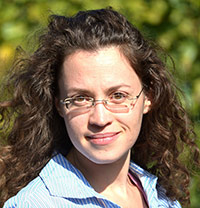 Dr. Shira Klein is Assistant Professor of History at Chapman University. She was educated at Tel Aviv University, University La Sapienza and New York University, and specializes in European Jewish history and migraiton. She has won awards from the Barbieri Foundation, the Memorial Foundation for Jewish Culture, the Yad Hanadiv/Beracha Foundation, and the USC Shoah Foundation. Her book Italy’s Jews from Emancipation to Fascism came out with Cambridge University Press in 2018. Her new research examines the encounter between Jews and Italy’s African empire.
Dr. Shira Klein is Assistant Professor of History at Chapman University. She was educated at Tel Aviv University, University La Sapienza and New York University, and specializes in European Jewish history and migraiton. She has won awards from the Barbieri Foundation, the Memorial Foundation for Jewish Culture, the Yad Hanadiv/Beracha Foundation, and the USC Shoah Foundation. Her book Italy’s Jews from Emancipation to Fascism came out with Cambridge University Press in 2018. Her new research examines the encounter between Jews and Italy’s African empire. -
Paul Lerner
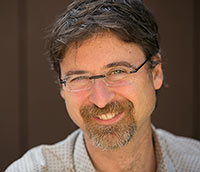 Paul Lerner is a Professor and Director of Graduate Studies in the History Department and Director of the Max Kade Institute for Austrian-German-Swiss Studies at USC. He is a historian of modern German-speaking Europe, consumer culture and the human sciences. He has written two books: Hysterical Men: War, Psychiatry, and the Politics of Trauma in Germany, 1890-1930 and The Consuming Temple: Jews, Department Stores, and the Consumer Revolution in Germany, 1880-1940 and co-edited volumes on trauma, psychiatry and history, Jewish masculinities, and Los Angeles as a site of German emigration and has forthcoming volumes on Jewish consumer cultures and Lion Feuchtwanger and Judaism. With the aid of a research grant from the Botstiber Institute of Austrian-American Studies, Lerner is currently working on a book project on Central European émigrés, American consumer culture, and democracy in the period of the Cold War.
Paul Lerner is a Professor and Director of Graduate Studies in the History Department and Director of the Max Kade Institute for Austrian-German-Swiss Studies at USC. He is a historian of modern German-speaking Europe, consumer culture and the human sciences. He has written two books: Hysterical Men: War, Psychiatry, and the Politics of Trauma in Germany, 1890-1930 and The Consuming Temple: Jews, Department Stores, and the Consumer Revolution in Germany, 1880-1940 and co-edited volumes on trauma, psychiatry and history, Jewish masculinities, and Los Angeles as a site of German emigration and has forthcoming volumes on Jewish consumer cultures and Lion Feuchtwanger and Judaism. With the aid of a research grant from the Botstiber Institute of Austrian-American Studies, Lerner is currently working on a book project on Central European émigrés, American consumer culture, and democracy in the period of the Cold War. -
Michael Renov
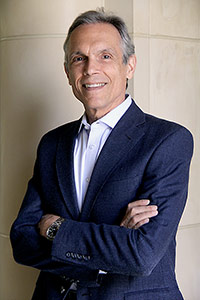 Michael Renov is the Haskell Wexler Endowed Chair in Documentary and a Professor of Cinema & Media Studies as well as Vice Dean for Academic Affairs in the USC School of Cinematic Arts. He is the author or editor of seven books including several on documentary film including Theorizing Documentary, Collecting Visible Evidence, Cinema’s Alchemist: The Films of Peter Forgacs, and The Subject of Documentary. In 1993, Renov co-founded Visible Evidence, a series of international and highly interdisciplinary documentary studies conferences that have, to date, been held on five continents. He is one of three general editors for the Visible Evidencebook series which has published 28 volumes on various aspects of nonfiction media since 1997. Renov has served on the jury at documentary film festivals including Sundance, Silverdocs, the Buenos Aires International Independent Film Festival, Brazil's It's All True, the International Environmental Festival of Film and Video, also in Brazil, the EBS Documentary Film Festival in Seoul, South Korea and DocLisboa in Portugal and has taught graduate seminars at the University of Stockholm, Tel Aviv University and the Central European University in Budapest, Hungary.
Michael Renov is the Haskell Wexler Endowed Chair in Documentary and a Professor of Cinema & Media Studies as well as Vice Dean for Academic Affairs in the USC School of Cinematic Arts. He is the author or editor of seven books including several on documentary film including Theorizing Documentary, Collecting Visible Evidence, Cinema’s Alchemist: The Films of Peter Forgacs, and The Subject of Documentary. In 1993, Renov co-founded Visible Evidence, a series of international and highly interdisciplinary documentary studies conferences that have, to date, been held on five continents. He is one of three general editors for the Visible Evidencebook series which has published 28 volumes on various aspects of nonfiction media since 1997. Renov has served on the jury at documentary film festivals including Sundance, Silverdocs, the Buenos Aires International Independent Film Festival, Brazil's It's All True, the International Environmental Festival of Film and Video, also in Brazil, the EBS Documentary Film Festival in Seoul, South Korea and DocLisboa in Portugal and has taught graduate seminars at the University of Stockholm, Tel Aviv University and the Central European University in Budapest, Hungary. -
Stefanie Schüler-Springorum
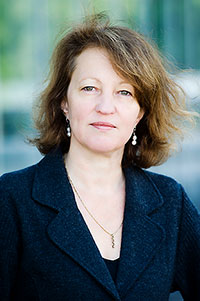 Stefanie Schüler-Springorum studied Modern History, Ethnology and Political Science at the Universities of Göttingen/Germany and Barcelona/Spain, and received her Ph.D. from the University of Bochum/Germany in 1993. She worked at the Berlin Foundation "Topography of Terror", and between 1996-2001 on various research projects on German-Jewish History and on the History of National Socialism. Between 2001-2011, she served as Director of the Institute for German-Jewish History and professor at Hamburg University; since 2009 as head of the German branch of the Leo Baeck Institute. Since 2011, she is the Director of the Center for Research on Anti-Semitism, since 2012, member of the Board of Directors of the Selma Stern Center for Jewish Studies, both in Berlin. She is author of: Perspektiven deutsch-jüdischer Geschichte: Geschlecht und Differenz (2014); Krieg und Fliegen. Die Legion Condor im Spanischen Bürgerkrieg 1936-1939 (2010; span. version 2014); Denkmalsfigur. Biographische Annäherung an Hans Litten (2008); Die jüdische Minderheit in Königsberg/Pr. 1871-1945 (1996).
Stefanie Schüler-Springorum studied Modern History, Ethnology and Political Science at the Universities of Göttingen/Germany and Barcelona/Spain, and received her Ph.D. from the University of Bochum/Germany in 1993. She worked at the Berlin Foundation "Topography of Terror", and between 1996-2001 on various research projects on German-Jewish History and on the History of National Socialism. Between 2001-2011, she served as Director of the Institute for German-Jewish History and professor at Hamburg University; since 2009 as head of the German branch of the Leo Baeck Institute. Since 2011, she is the Director of the Center for Research on Anti-Semitism, since 2012, member of the Board of Directors of the Selma Stern Center for Jewish Studies, both in Berlin. She is author of: Perspektiven deutsch-jüdischer Geschichte: Geschlecht und Differenz (2014); Krieg und Fliegen. Die Legion Condor im Spanischen Bürgerkrieg 1936-1939 (2010; span. version 2014); Denkmalsfigur. Biographische Annäherung an Hans Litten (2008); Die jüdische Minderheit in Königsberg/Pr. 1871-1945 (1996). -
Brenda E. Stevenson
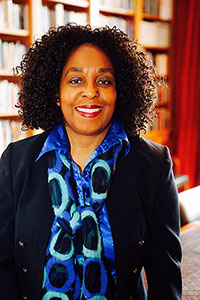 Brenda E. Stevenson is the Nickoll Family Endowed Chair and Professor of History and African American Studies at UCLA. Her areas of expertise include women’s history, the American South, African American history, family history, Atlantic world slavery, history and film, and racial/ethnic conflict. Her book length publications include Life in Black and White: Family and Community in the Slave South; The Contested Murder of Latasha Harlins: Justice, Gender and the Origins of the L.A. Riots; and What is Slavery? She is the editor of The Journals of Charlotte Forten Grimke; the co-author of The Underground Railroad; and a co-editor of The Encyclopedia of Black Women’s History. She currently is writing a book on slave women and completing a book on the slave family.
Brenda E. Stevenson is the Nickoll Family Endowed Chair and Professor of History and African American Studies at UCLA. Her areas of expertise include women’s history, the American South, African American history, family history, Atlantic world slavery, history and film, and racial/ethnic conflict. Her book length publications include Life in Black and White: Family and Community in the Slave South; The Contested Murder of Latasha Harlins: Justice, Gender and the Origins of the L.A. Riots; and What is Slavery? She is the editor of The Journals of Charlotte Forten Grimke; the co-author of The Underground Railroad; and a co-editor of The Encyclopedia of Black Women’s History. She currently is writing a book on slave women and completing a book on the slave family.Stevenson’s professional accolades include: a Guggenheim Foundation Fellowship; the John Blassingame Award for Scholarship and Mentorship; the Berlin Prize; a National Humanities Center Fellowship; the James A. Rawley Book Prize from the Organization of American Historians; the Ida B. Wells Award; and the Gustavus Meyer Outstanding Book Prize. Her research has been supported as well by the Ford Foundation; the Mellon Foundation; and the American Association of University Women. She is the recipient of the 2014 UCLA Gold Shield Faculty Award for outstanding teaching, scholarship and service; and is past Chair of the Department of History and the Interdepartmental Program in African American Studies.
-
Marla Stone
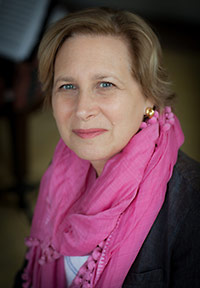 Marla Stone is professor of History and department chair at Occidental College. She is a historian of twentieth century Europe and focuses on fascism, authoritarianism, and genocide. Professor Stone is the author and editor of a number of books, including The Patron State: Culture and Politics in Fascist Italy (Princeton University Press, 1998), When the Wall Came Down (Routledge, 1993), and The Fascist Revolution (Bedford- St. Martin’s, 2012). The author of thirteen articles, anthology essays, and book chapters, Professor Stone’s work has appeared in The Journal of Modern Italian Studies, The Journal of Contemporary History, Constellations, Memoria e ricerca, The New England Journal of History, and The Journal of Hate Studies. Professor Stone has been a fellow at the American Academy in Rome (1995/1996), the Wolfsonian Foundation (1995), the Shelby Cullom Davis Center for Historical Studies at Princeton University (2007), the Center for Advanced Study in the Behavioral Sciences at Stanford University (2011/2012) and the European University Institute, Florence (2017). Her current book project, The Enemy: The Politics and Propaganda of Anti-communism in Italy, analyzes anti-communism in Italy from Fascism through Christian Democracy, its impact upon Italian politics and the implications for democracy of a mobilization of fear and hatred toward an internal and external political enemy. Marla Stone sits on the Board of Directors of the American Civil Liberties Union of Southern California.
Marla Stone is professor of History and department chair at Occidental College. She is a historian of twentieth century Europe and focuses on fascism, authoritarianism, and genocide. Professor Stone is the author and editor of a number of books, including The Patron State: Culture and Politics in Fascist Italy (Princeton University Press, 1998), When the Wall Came Down (Routledge, 1993), and The Fascist Revolution (Bedford- St. Martin’s, 2012). The author of thirteen articles, anthology essays, and book chapters, Professor Stone’s work has appeared in The Journal of Modern Italian Studies, The Journal of Contemporary History, Constellations, Memoria e ricerca, The New England Journal of History, and The Journal of Hate Studies. Professor Stone has been a fellow at the American Academy in Rome (1995/1996), the Wolfsonian Foundation (1995), the Shelby Cullom Davis Center for Historical Studies at Princeton University (2007), the Center for Advanced Study in the Behavioral Sciences at Stanford University (2011/2012) and the European University Institute, Florence (2017). Her current book project, The Enemy: The Politics and Propaganda of Anti-communism in Italy, analyzes anti-communism in Italy from Fascism through Christian Democracy, its impact upon Italian politics and the implications for democracy of a mobilization of fear and hatred toward an internal and external political enemy. Marla Stone sits on the Board of Directors of the American Civil Liberties Union of Southern California.